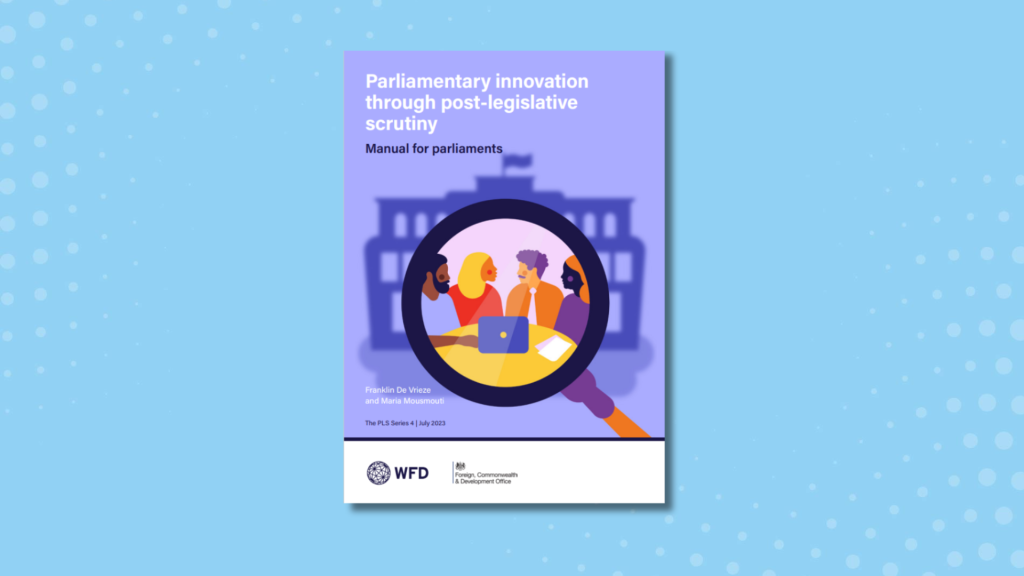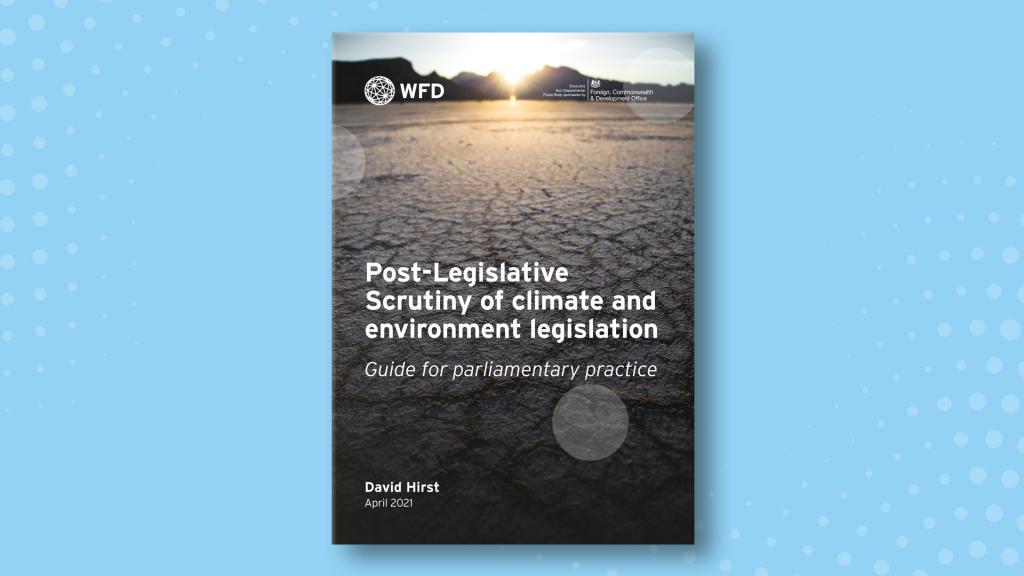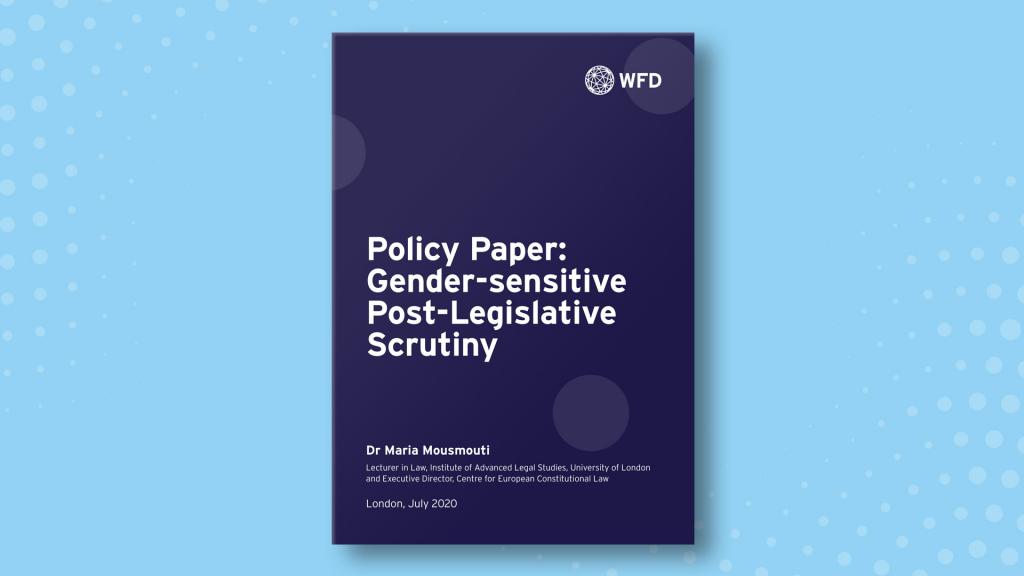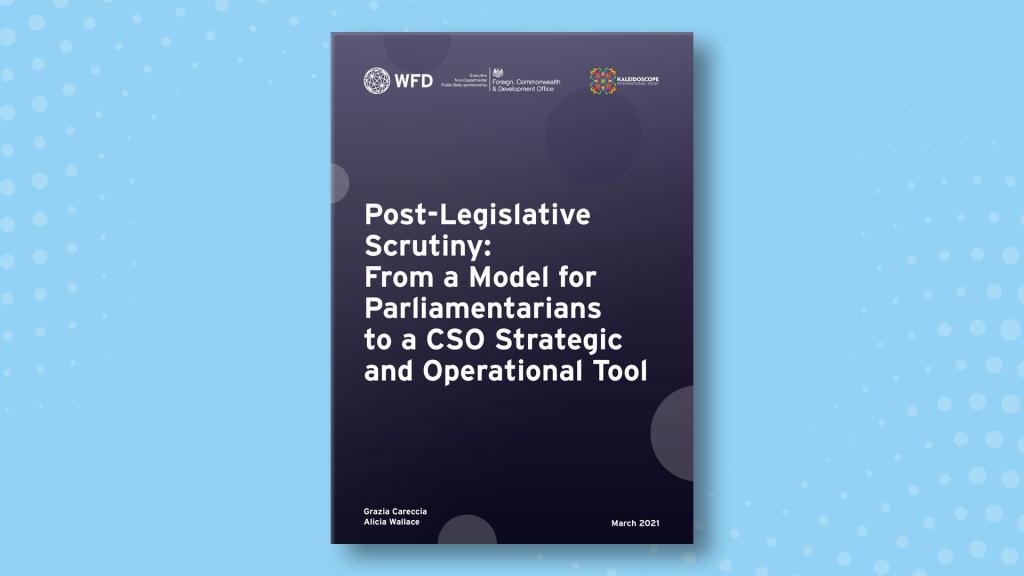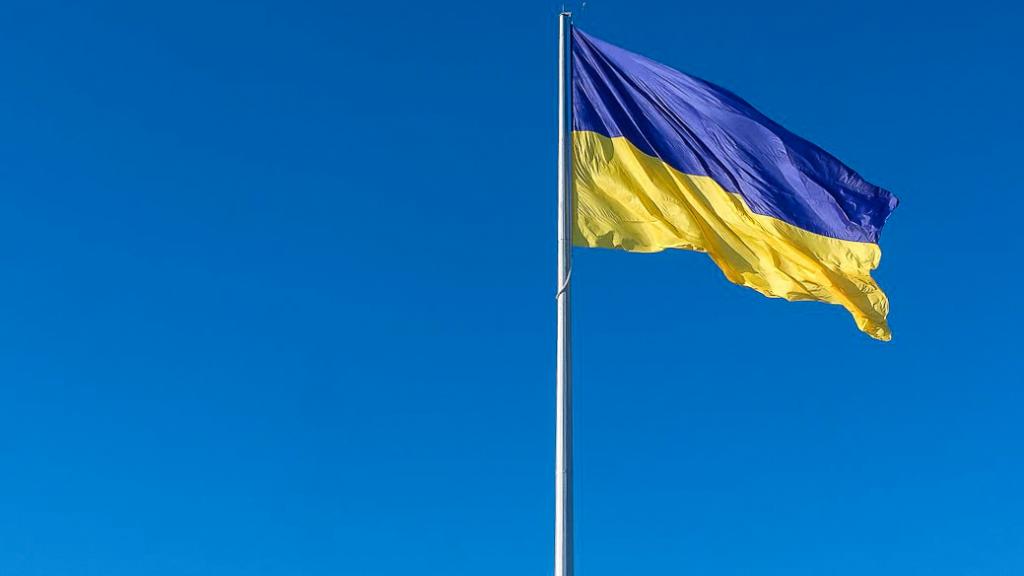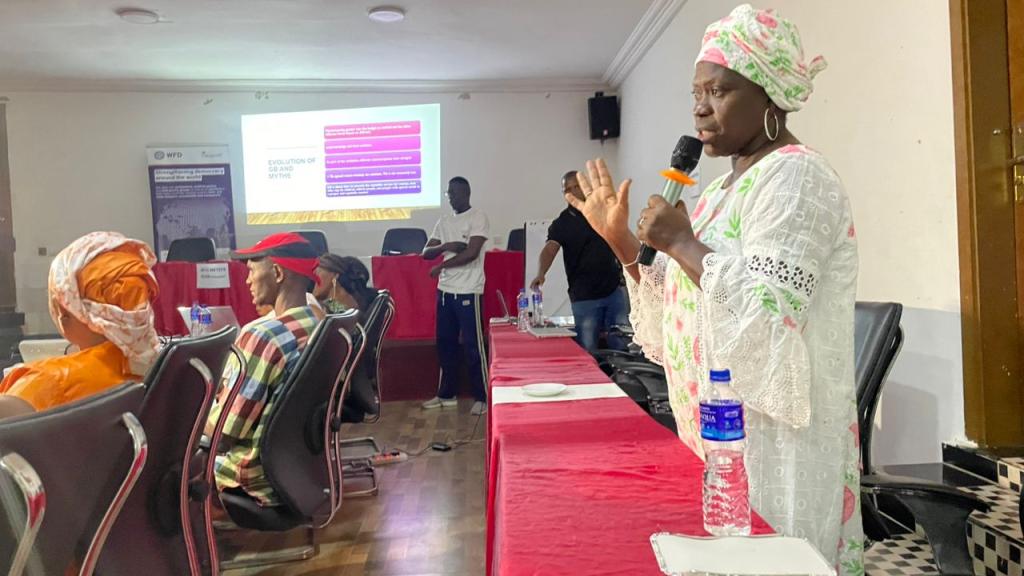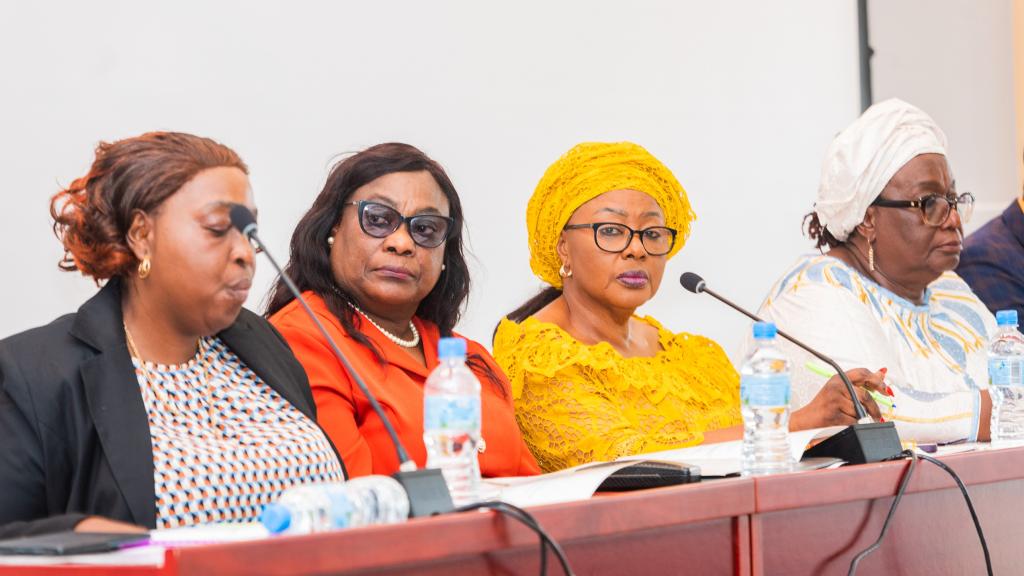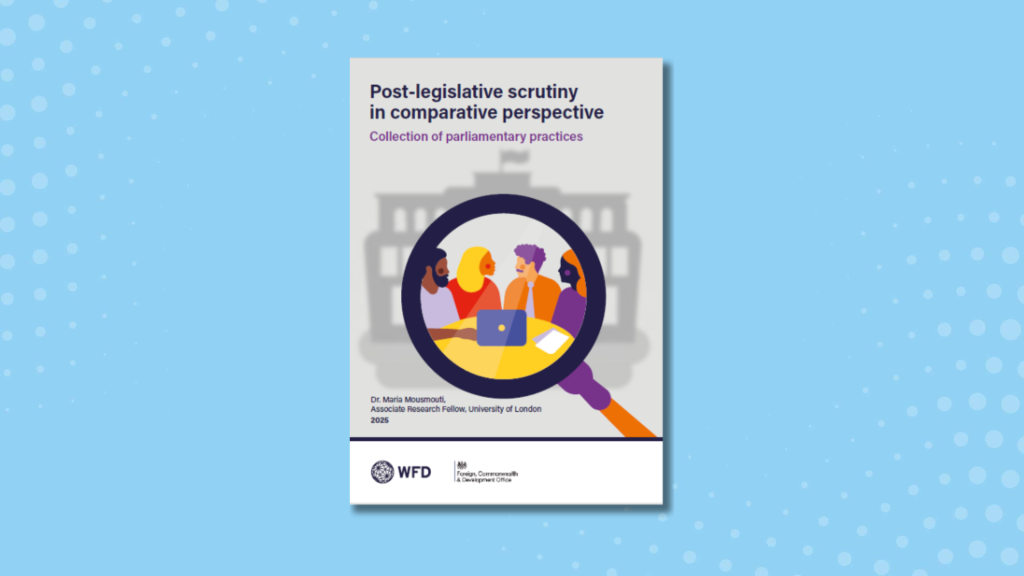Parliaments make and change laws. They also have a role in checking the implementation of laws and evaluating whether they achieve their intended outcomes. Implementation is complex and does not happen automatically. What is more, parliaments and elected representatives often have little information on what happens after a law is adopted. So, parliaments need mechanisms to effectively monitor the implementation of legislation.
Post-legislative scrutiny (PLS) is the practice of monitoring the implementation and evaluating the impact of laws. The aim is to ensure that laws benefit citizens in the way originally intended by lawmakers. PLS is often carried out by parliamentary committees and is a prominent feature of UK parliamentary democracy. As PLS is recognized as an integral part of the legislative cycle, it is emerging as a new dimension within the legislative and oversight role of parliament.
WFD has helped parliaments around the world pioneer post-legislative scrutiny.
In Ukraine, WFD supported the Verkhovna Rada of Ukraine (VRU), the Parliament of Ukraine, to strengthen parliamentary oversight, in response to the European Parliament proposed Roadmap of Reforms of the Verkhovna Rada in 2016.
Find out about our work strengthening parliamentary oversight in Ukraine
In Nepal, WFD assisted the parliament to examine the implementation of laws used in the country’s response to COVID-19.
In the Western Balkans, WFD has worked with the parliamentary Committees on Human Rights and Gender Equality in initiating PLS in all parliaments of the Western Balkans.
Find out about our work supporting PLS in the Western Balkans

Join us for an engaging webinar that explores how post-legislative scrutiny (PLS) is being used to strengthen governance, accountability, and legislative effectiveness across the African continent.
PLS features in the vast majority of our programmes, from introducing MPs to the practice to supporting the pilot of PLS inquiries. When it comes to PLS, WFD takes two approaches. The first is an institutional approach to PLS, whereby we focus on strengthening parliament’s capacity for PLS. The second is a thematic approach, focusing on gender-sensitive and climate-proof PLS.
WFD has also developed research and guides to PLS. This includes an annual course on post-legislative scrutiny, organised in cooperation with the Institute of Advanced Legal Studies (IALS) of the University of London.

Our expertise
Franklin De Vrieze - Head of Practice, Accountability
Franklin is a democracy and governance expert with extensive experience in post conflict, fragile and transition countries. He is WFD's in-house expert on Post-Legislative Scrutiny, independent oversight institutions, financial accountability, and anti-corruption. He develops resources and research to support the design and implmentation of WFD programmes.
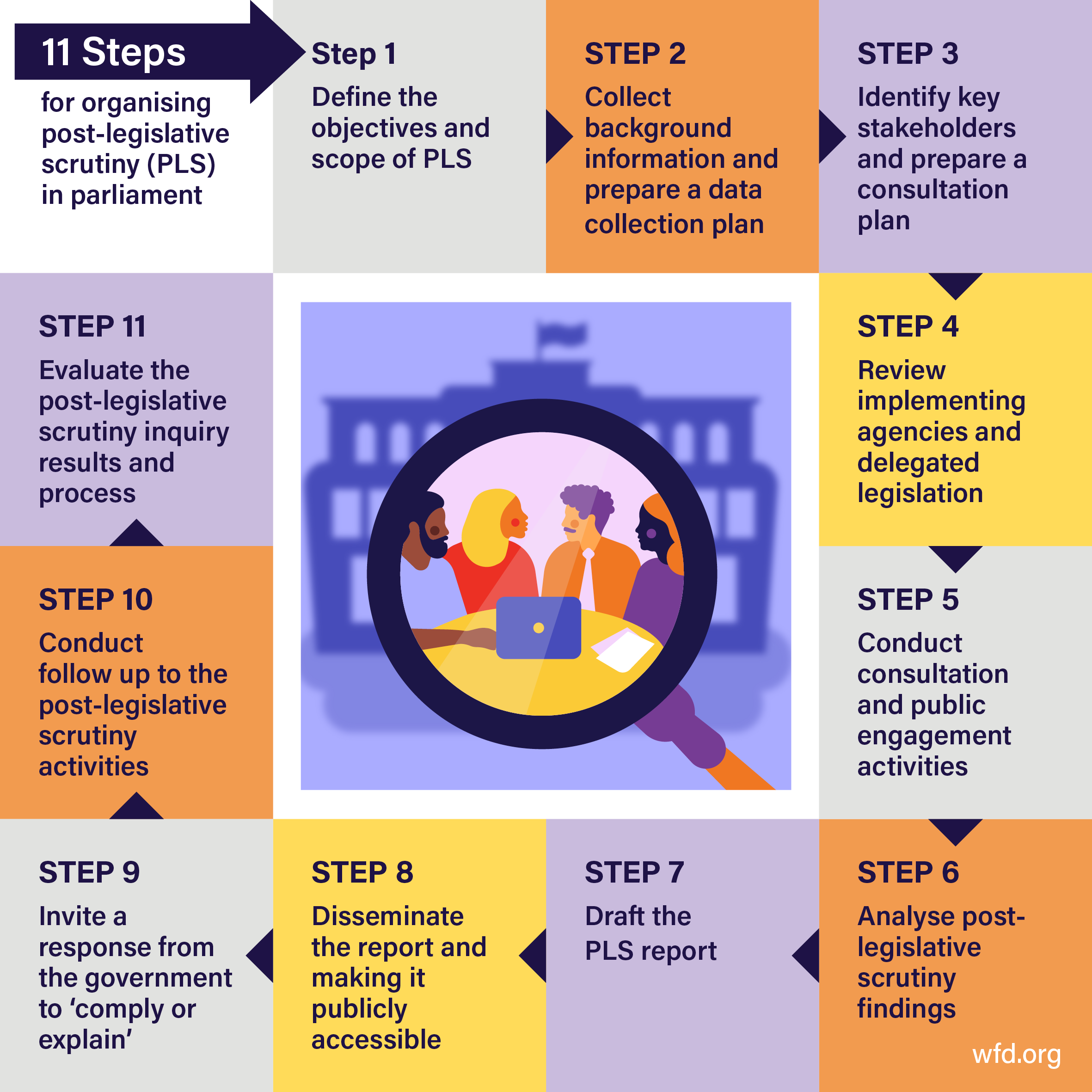
The second edition of the PLS Manual for parliaments provides practical guidance for preparing, organising and following up on PLS activities. The Manual proposes new or additional parliamentary practices to improve the efficiency of PLS and/or its outreach to the public. The Manual outlines 11 methodological steps for organising PLS in parliament, which we have put in a handy infographic.


